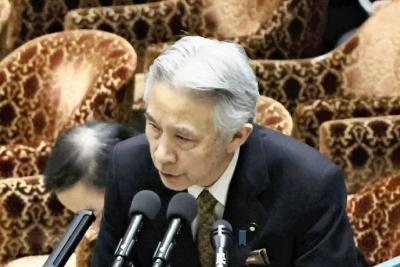Japan to help Italy preserve cultural treasures in the face of climate change

ROME - Japan's Culture Minister Masahito Moriyama has expressed his optimism for the potential of Italy and Japan's strengthening relationship - one characterised by a mutual adoration of cultural heritage and an anxiety to preserve this history in areas susceptible to natural disasters.
Speaking to Il Mattino, Moriyama noted that both countries have cultural treasures and archaeological sites located in areas prone to natural hazards, and that, as more of the world faces extreme weather due to climate change, countries exchanging notes and techniques on how to limit damage could play an important role in preserving heritage sites.
Whilst Italy has had its fair share of wreckage from earthquakes and eruptions, Japan's location in the Ring of Fire, and so the sheer frequency of disasters, has simply forced it to develop means of preserving archaelogical sites and relics. In the interview, Moriyama recalled the aftermath of the infamous 2011 earthquake and tsunami, which took the lives of nearly 20,000 people and damaged 754 of Japan's state-recognised 'Cultural Properties' ('bunkazai') (source: Agency for Cultural Affairs).
"We would like to share with Italy our accumulated knowledge on the restoration of cultural goods damaged by water, as well as our knowledge on the restoration of cultural goods impacted by catastrophes", remarked Moriyama.
Much of this note-trading occurred at the G7 Summit for Culture Ministers in September, where representatives from the world's seven largest economies came together in Naples to discuss the shared issues facing culture and its appreciation today. On the agenda was a plethora of hot topics, from the threat generative AI poses for organic creativity to issues of illicit art trafficking. And, of course, the nations came together to discuss climate change and what can be done to limit the damage of extreme weather - an issue that used to affect few, but is now touching many more.
Moriyama also expressed his regret at not being able to visit the new excavation sites on Vesuvius at which academics from Tokyo University are working. The project is a symbol of a developing Italo-Japanese friendship when it comes to culture, one that Moriyama hopes will continue into 2025, when Japan will host the World Expo in Osaka and provide a stage for Italian heritage.
But in the meantime, Moriyama wished to make it clear that a united approach to conserving culture in the face of climate change is the best way forward: "when it comes to the seismic security of archaeological sites we are by Italy's side".
dabj
© COPYRIGHT ITALIAN INSIDER
UNAUTHORISED REPRODUCTION FORBIDDEN


